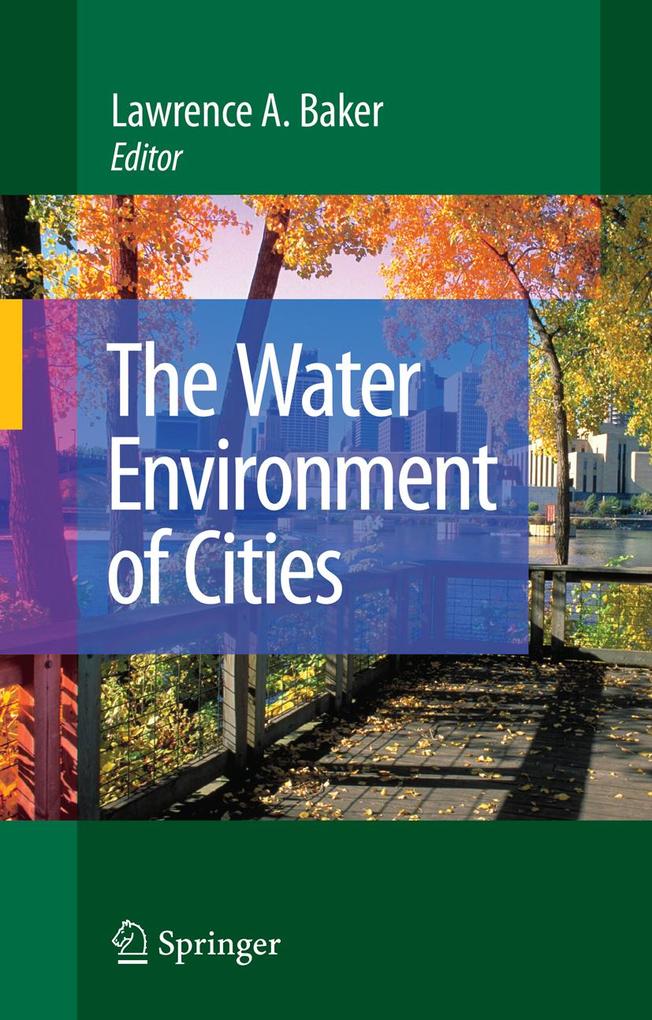The concept for the Water Environment of Cities arose from a workshop "Green 1 Cities, Blue Waters" workshop held in 2006. The workshop assembled experts from engineering, planning, economics, law, hydrology, aquatic ecology, geom- phology, and other disciplines to present research ? ndings and identify key new ideas on the urban water environment. At a lunch discussion near the end of the workshop, several of us came to the recognition that despite having considerable expertise in a narrow discipline, none of us had a vision of the "urban water en- ronment" as a whole. We were, as in the parable, blind men at opposite ends of the elephant, knowinga great deal about the parts, but notunderstandingthe whole. We quickly recognized the need to develop a book that would integrate this knowledge to create this vision. The goal was to develop a book that could be used to teach a complete, multidisciplinary course, "The Urban Water Environment", but could also be used as a supplemental text for courses on urban ecosystems, urban design, landscapearchitecture, water policy, waterqualitymanagement andwatershed m- agement. The book is also valuable as a reference source for water professionals stepping outside their arena of disciplinary expertise. The Water Environment of Cities is the ? rst book to use a holistic, interdis- plinary approach to examine the urban water environment. We have attempted to portrayaholisticvisionbuiltaround theconcept of water as a coreelement ofcities. Water has multipleroles:municipalwatersupply, aquatichabitat, landscapeaesth- ics, and recreation. Increasingly, urban water is reused, serving multiple purposes.
Inhaltsverzeichnis
The Urban Water Budget. - Groundwater in the Urban Environment. - Urban Infrastructure and Use of Mass Balance Models for Water and Salt. - New Concepts for Managing Urban Pollution. - Streams and Urbanization. - Urban Water Recreation: Experiences, Place Meanings, and Future Issues. - Urban Design and Urban Water Ecosystems. - Legal Framework for the Urban Water Environment. - Institutions Affecting the Urban Water Environment. - Institutional Structures for Water Management in the Eastern United States. - Adaptive Water Quantity Management: Designing for Sustainability and Resiliency in Water Scarce Regions. - Demand Management, Privatization, Water Markets, and Efficient Water Allocation in Our Cities. - Principles for Managing the Urban Water Environment in the 21st Century.












